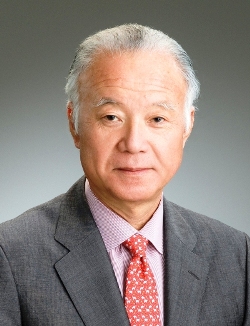Created in 2005 by the Committee for Presidential Initiatives as the first interdisciplinary research project at the University of Tokyo, IR3S was a global pioneer in creating the field of sustainability science and has continually worked toward building a global foundation for its study. By integrating the study of universal challenges shared around the world with unique local and regional challenges, IR3S seeks to contribute to the resolution of both global and local problems. The results of its efforts have already led to the proposal of a strategic vision for building a sustainable society by identifying and integrating elements that lead to a low-carbon society, a resource-circulating society, and a society in harmony with nature.
To achieve its goals, IR3S set its sights on creating a network of Japanese universities and research institutions, local governments, and industry which led in 2010 to the establishment of the Sustainability Science Consortium (SSC). In 2009, in an effort to build a meta-network linking universities and international bodies that serve as focal points throughout the world, including in the United States and Europe, IR3S hosted the first International Conference on Sustainability Science. Since then, the program has joined other universities throughout the world in annually hosting ICSS as well as its Asian platform, ICSS-Asia, making it the world leader in this field.
In 2007, it created the international academic journal Sustainability Science published by Springer. Published quarterly the journal is today the global leader in its field. By way of special feature issues on specific regional and global sustainability issues, this journal actively seeks out holistic, integrated articles that do not fit easily into traditional journals in existing disciplines as well as articles from scholars in developing countries in Asia and Africa. Most recently, in 2012, IR3S played a central role in establishing the International Society for Sustainability Science (ISSS). Upon the founding of the society,Sustainability Science was repositioned as the official journal of ISSS.
In addition to its international research and scholarly network building, IR3S is also heavily involved in education initiatives such as the University of Tokyo Graduate Program in Sustainability Science which was established in 2007 in the Graduate School of Frontier Sciences. Beginning in 2012, IR3S is participating in the operation of the Graduate Program in Sustainability Science – Global Leadership Initiative (GPSS-GLI) selected by the Ministry of Education Culture Sports and Technology, Japan (MEXT) as a “Leading Program in Doctoral Education.” Through this initiative, IR3S will devote its energies to advancing research, linking societies, developing an international meta-network, and training the next generation of leaders responsible for global sustainability.
The Great East Japan Earthquake has had a tremendous impact on the vision of sustainability science. We know for example from this catastrophe that a sustainable society must also be a resilient society, one that can flexibly cope with short-term and long-term disasters. Sustainability science can contribute to promoting resilience. With efforts that stem from its vision for achieving a society that functions in harmony with nature, for example by restoring the forests and coastal areas in the disaster-affected areas along the NE coast of Japan, we believe that sustainability science can and will play an important role in disaster recovery in Japan and, ultimately, on a global scale.
Kazuhiko Takeuchi,
Director, IR3S

